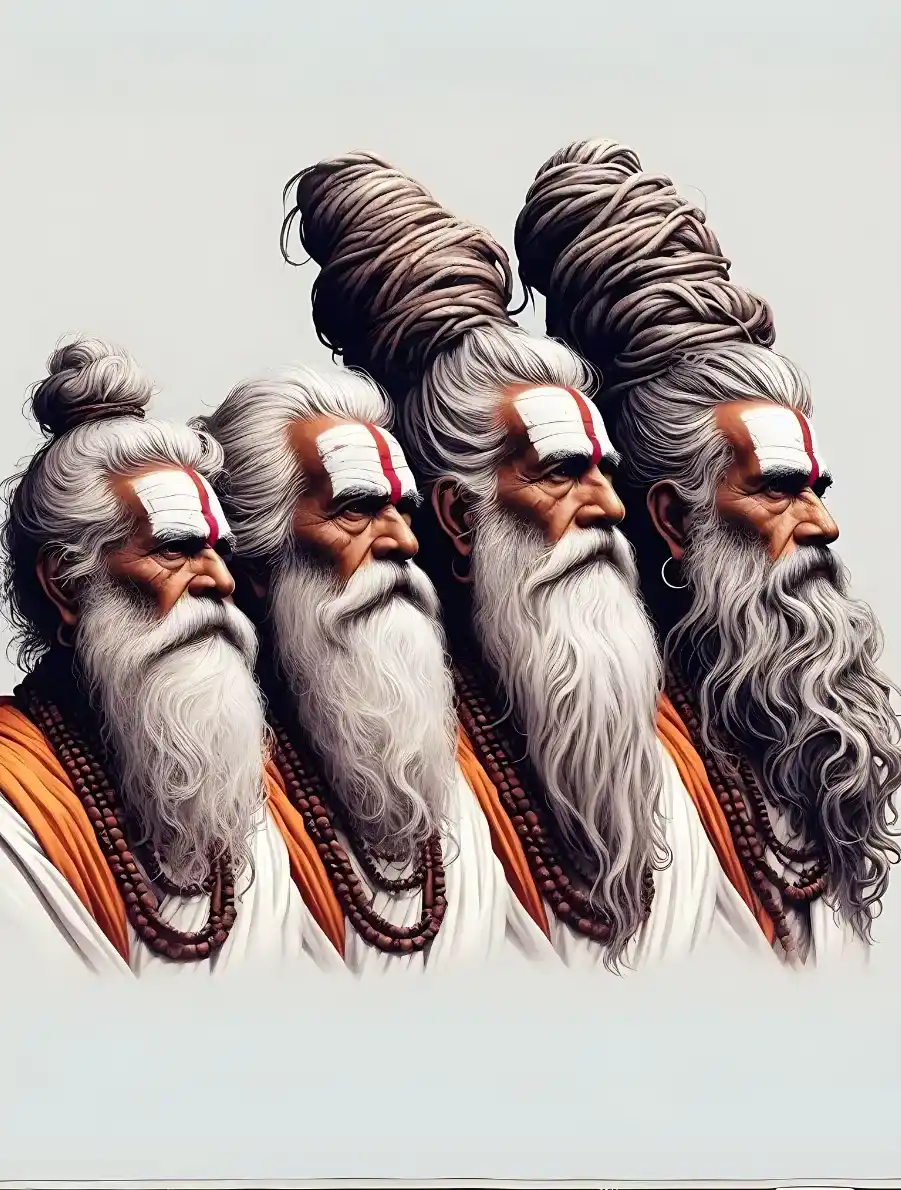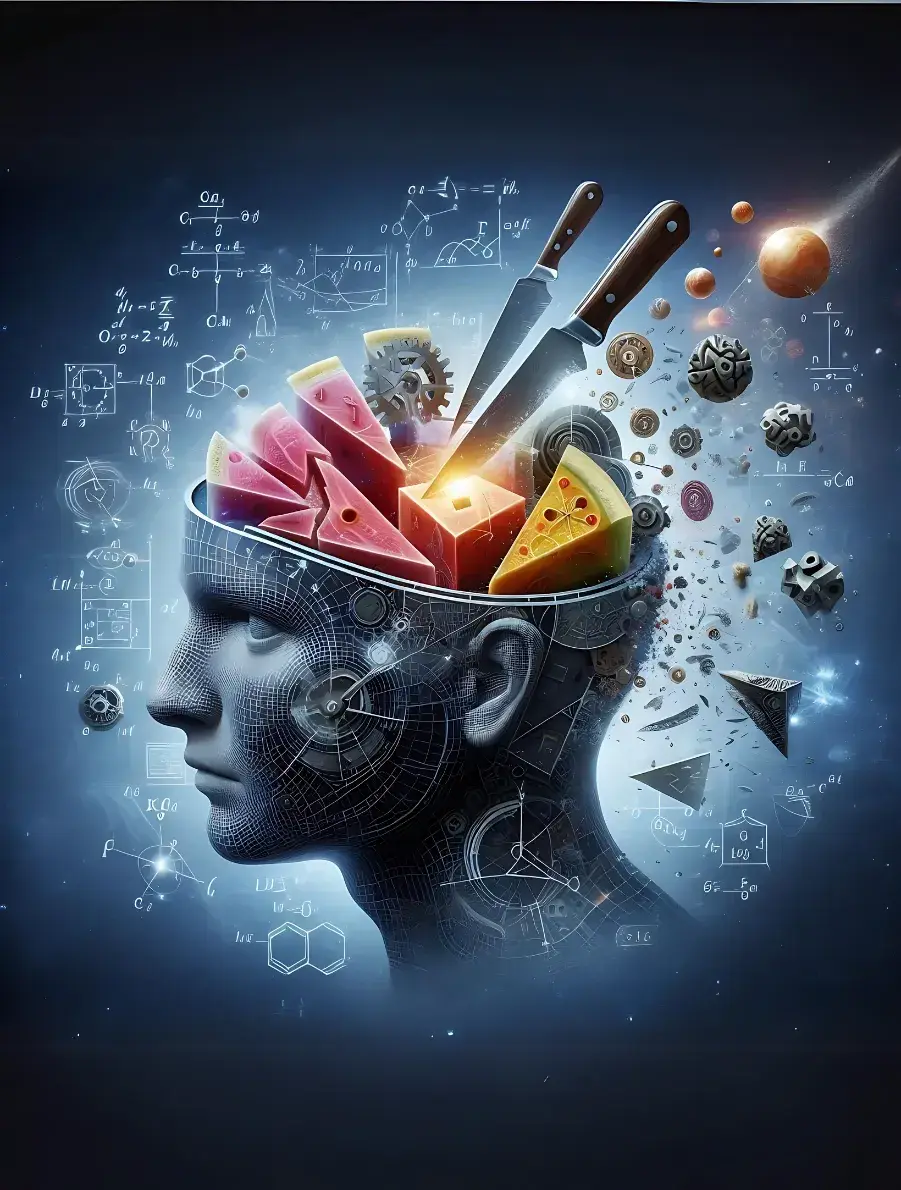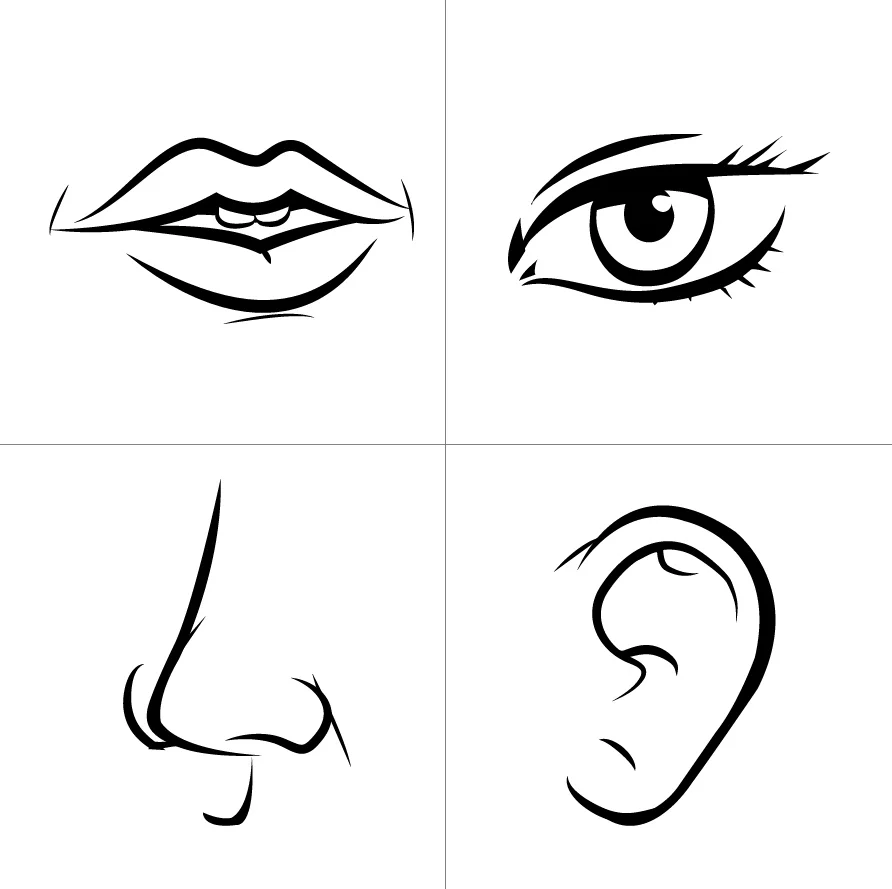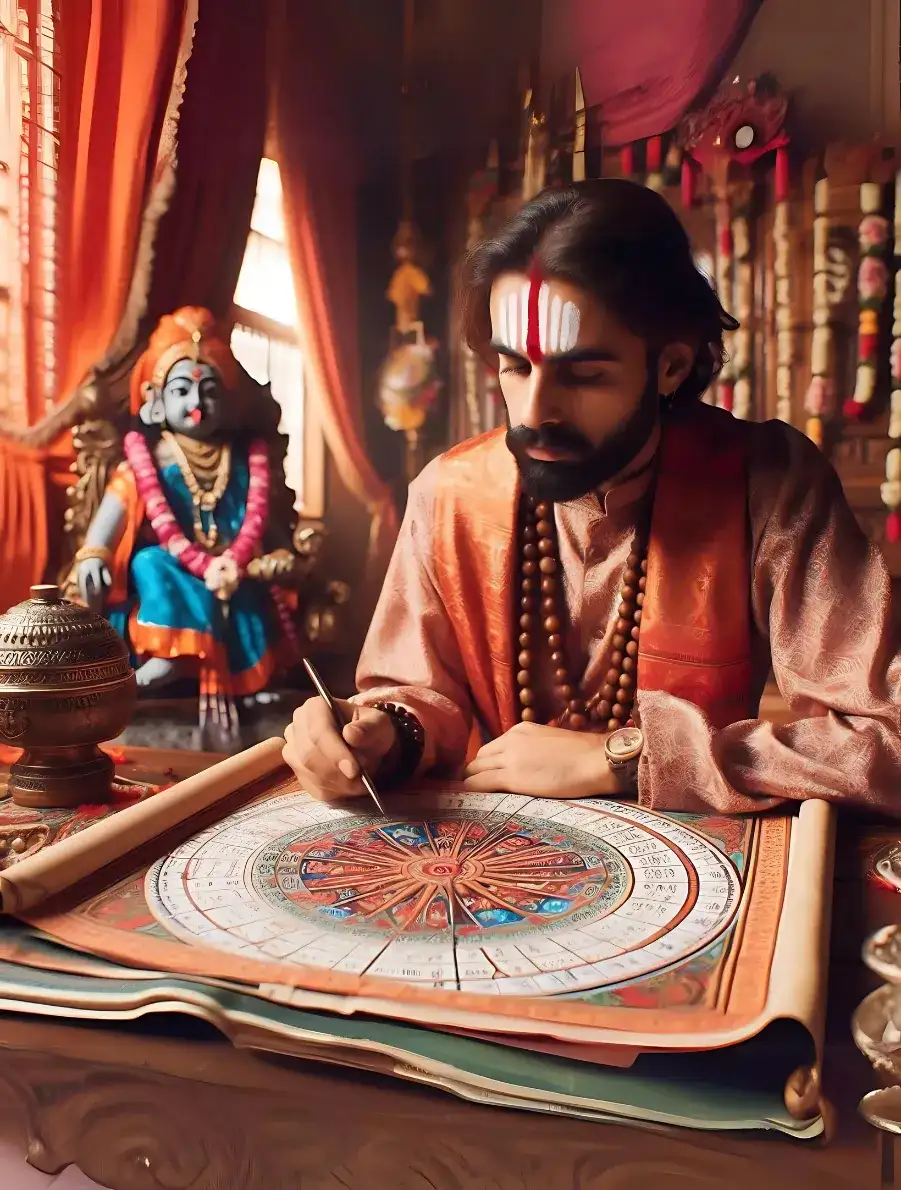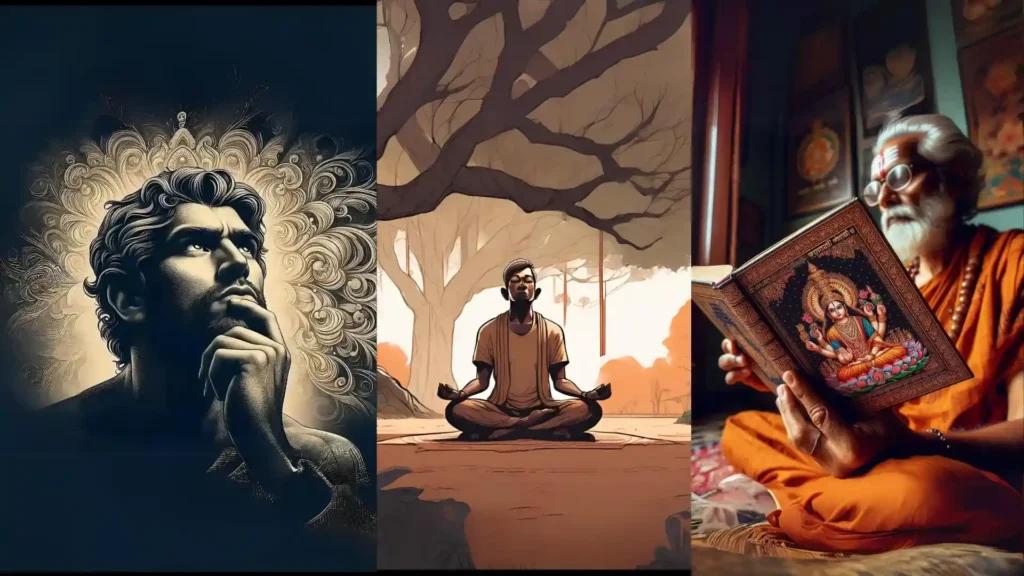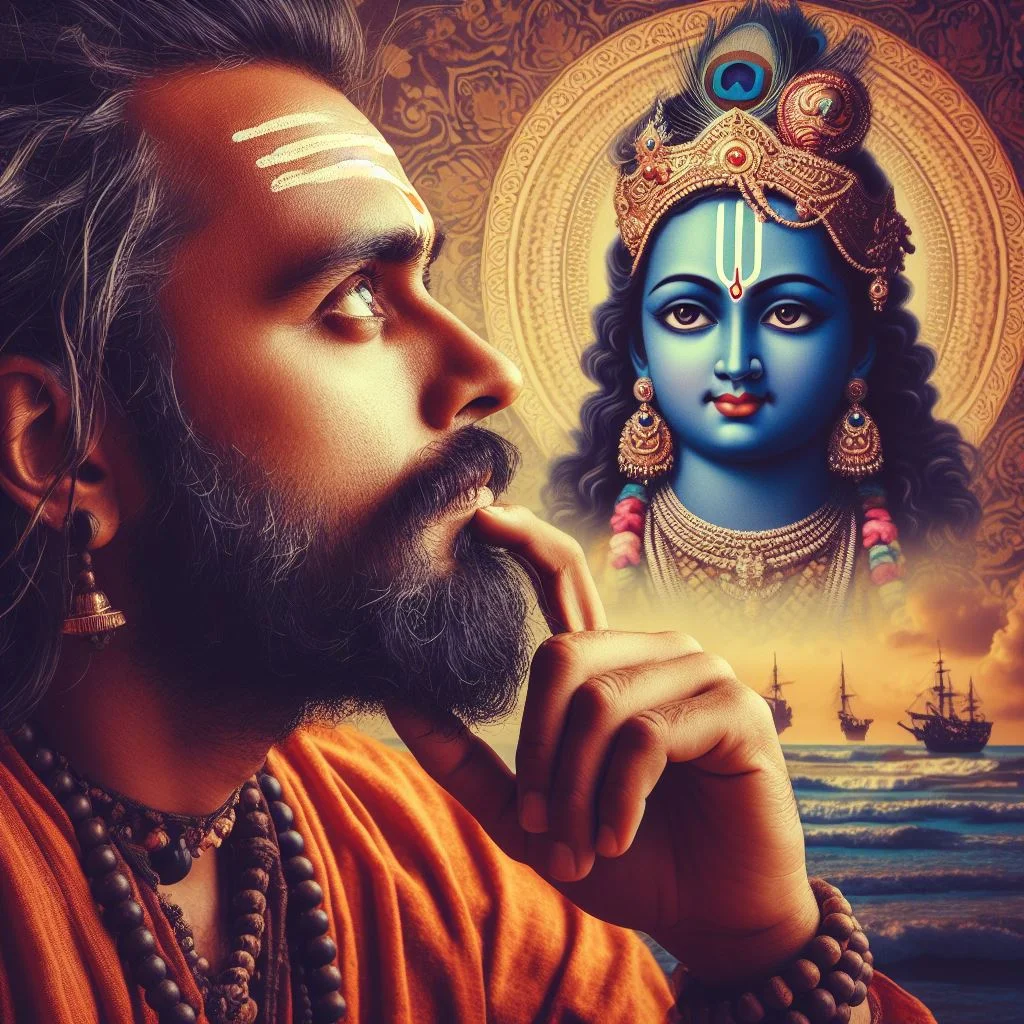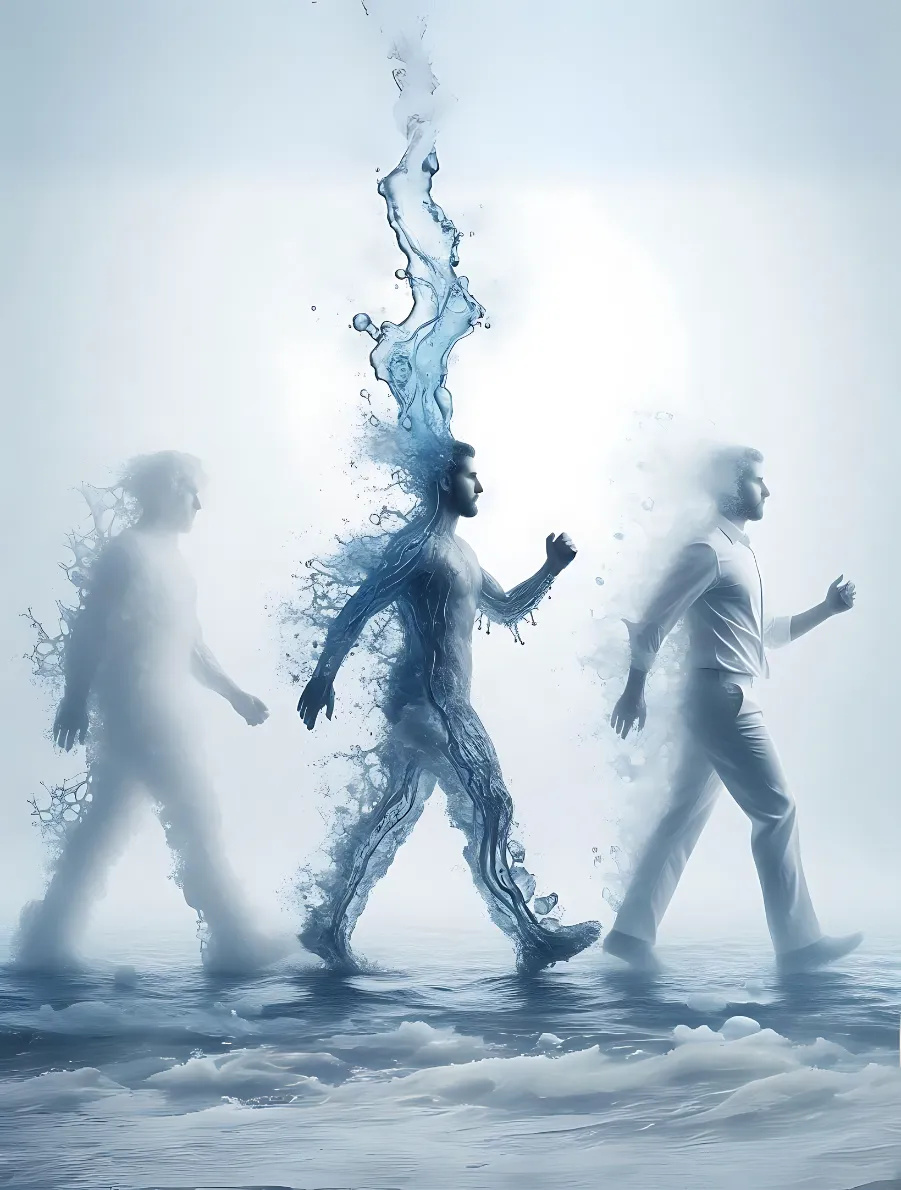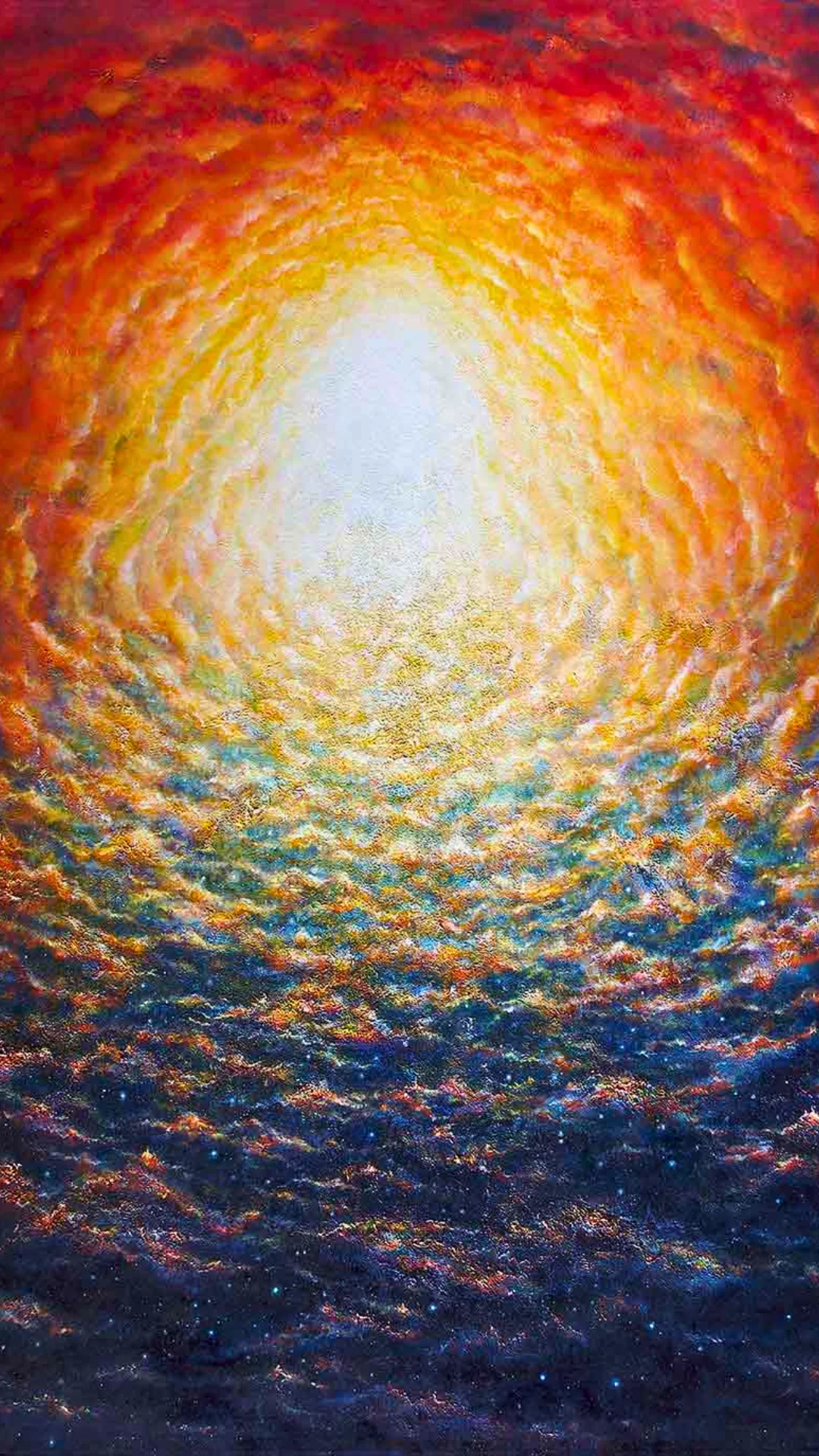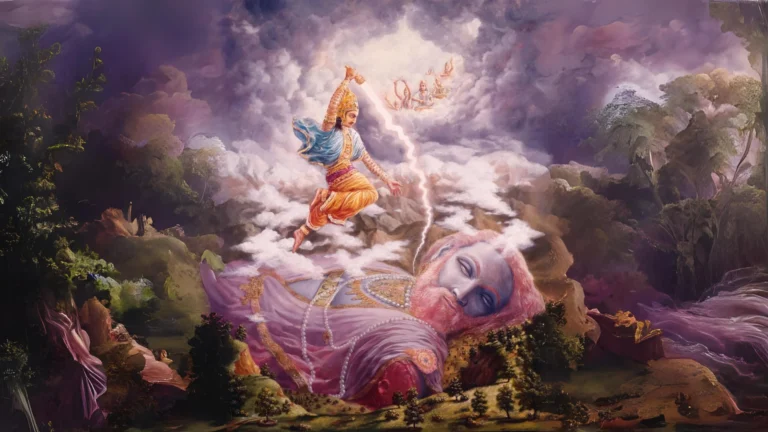Please Like the Blog and Share it for Maximum Reach
Table of Contents
Brahma Vidya: The Goal of Jnana
Brahma Vidya (ब्रह्म-विद्या) is the Knowledge of Brahman. It is the fundamental science or the rudimental substance of all knowledge. Lord Brahma first transmitted the pure science of Brahma Vidya to his eldest son Atharva, Atharva transmitted it to Angi. Angi transmitted the Brahma Vidya to Satyavaha, the son of Bharadhwaja and from him, the Knowledge went to Angiras.
One day, Shaunaka, the great conductor of sacrifices approached Angiras and said
“What is that, O Bhagawan, through the knowledge of which everything becomes known?” The answer was- “The knowledge of everything lies in the knowledge of just one reality, Brahma Vidya (ब्रह्म-विद्या). Under ordinary circumstances, knowledge about one thing does not necessarily imply knowledge about other things.
The Nature of Brahma Vidya
But Brahma Vidya includes all knowledge within its body. Hence knowledge about everything else comes in it. Spiritual knowledge indicates that objective knowledge fuses into the essence of the subjective experience.
It is an indivisible all-inclusive cognition that is unifying by its very nature, unlike intellect which slices and divides an experience. Thus intellect has its limitations because the study of a part does not roll up to the experience of the whole as is the case with our daily experience.
For instance- Understanding the molecule of the leaf does not tell us anything about the tree or its fruit. Hence, subjective cognition takes the entire experience of the tree, soil, sunshine, rain, and everything related to the tree as a single unit. However, this subjective experience rises beyond the outward-going senses and their interactions with the sense objects.
Subjective experience is intuitive by nature driven by the pure Self. Hence, it does not function out of sense-perceived duality. It is a self-identified integral experience. Well, it would be apt to name this experience as Cogitative perception. Experience is born out of an object.
However, Cogitative perception is born out of the Self, independent of the sense-organs.
It is the Knowledge of the highest cause, the knowledge of which, means the knowledge of all its effects. Perception beyond sensual impressions is the import of such knowledge.
Two Types of Knowledge or Jnana
There are two types of Knowledge Namely:
- Lower Knowledge or Material Knowledge
- Higher Knowledge or Insightful Knowledge beyond Matter
Lower Knowledge
The lower knowledge covers the four primary Vedas namely Rig, Yajur, Sama, and Atharva-Veda. The subject matter focuses on grammar, etymology, phonetics, material rituals (Karma Kanda), astronomy, and astrology that fundamentally link to objects of sensory perception.
Lower Knowledge refers to attainment, the gain of powers through a deity thereby possessing some attributes which one did not possibly own prior to attainment. An aspirant may wonder whether the lower vidya is of any consequence at all?
Sage Angiras tries to explain the lower vidya thus answering Sage Shaunaka’s question.
He anticipates such doubts are likely to arise in the minds of sincere Sadhakas. Hence, he immediately opines that lower knowledge is insufficient and incapable of serving as a means towards Brahman’s realization.
Through lower Vidya (Karma Kanda) you attain excellent regions through the performance of meritorious deeds such as prayer and sacrifice. It may also mean awakening of certain powers within (siddhis), through external aid or prayers, and hence attaining attributes of divinity. However, these powers are temporary and fickle by their very nature.
That which is permanent, the Imperishable Being is reached through another kind of Knowledge, opines the great sage Angiras.
Higher Knowledge
Higher knowledge means renunciation of all forms of subject-object experience.
The individual becomes absolutely free of psychological conceptions, stripped of all attributes disengaging from anything external.
The knowledge of the Upanishads destroys ignorance thus leading to perfection. Hence it is the means of attuning oneself with true naked Existence. Brahma Vidya is the technique or the science enabling one to reach Absolute Cognition or pure intuitive perception.
7/8 Questions from Sanatana Dharma
The scores generated in this Quiz may or may not be absolute. There may be right or wrong answers to each Question. A percentage towards 100 indicates that you are more aligned to the overall subject matter.
Material Knowledge v/s Insightful Knowledge
Lower knowledge initiates the performance of actions while in Higher Knowledge all actions cease to exist. In the lower Vidya, you must put effort to attain the deity after getting the appropriate knowledge.
However, in the higher Vidya, Knowledge does not pertain to any particular divinity.
It is not knowledge in the ordinary sense at all. Higher Knowledge does not refer to any distinction between the subject and the object. Simply the process of knowing exists through cognition or awareness.
Basis of Pure Knowledge
Pure Knowledge comes through great effort in the forms of Viveka. It refers to the ability to discriminate the object from the subject. There are three aspects to this they are:
- Vichara
- Vairagya
- Abhyasa
Vichara
Vichara is the ability to contemplate the nature of the Self by peeling away those attributes within our system that are other than the Self.
Vairagya
Vairagya is to detach ourselves from sense objects and practice austerity of the senses so that the mind is relieved completely of its addictive nature.
Abhyasa
Abhyasa means to study, practice, and ruminate on all those matters that enable the separation of the Self from objective attributes.
The Starting Point to Undertake the Journey Towards Brahma Vidya
The Common man is embroiled in Karma which is specifically termed as Vikarma. Vikarma is that Karma that the Scriptures prohibhit a man to perform. But then the argumenthere is, all of us are by default engaged in Vikarma.
We serve in Corporates, Government Offices, Private Oraganizations, Shops, departmental Stores and involved with Businesses, which have their basis is Adharma. Adharma is malpractices that go against Shastra in every way, where there is no Satya or Cleanliness of Intention. It is steeped in the mush of Exploitation, in the name of Survival.
Man fails to understand and absorb the import of the Shastra that says that before a person is born, the facilities for his survival is already made, by the Supreme. Yet, because of lack of Proper Knowledge, a lack of faith in Scriptures and owing to the evil effects of Kaliyuga, the modern man is ignorant about this basic fact.
He is ignorant of the obvious, that he is born to recognize his true duty and that is to serve the Supreme and break free from all the bonds that bind him to this world of matter. That is the one point program that a being should be committed. Instead we find that every being, without exception, is fighting for survival largely through unfair means, employing the rules of the dangerous jungle.
What man says is Karma (action) and the reaction that he gets in return, stems from his self-imposed naivety. Karma Yoga, should necessarily be the starting point, to break free of all the restrictions of the material world so that he becomes capable of acquiring Brahma Vidya and relieving himself of the burden of material life.
How do we relieve Ourselves from Binding Karma
A follower of the Path of Karma Yoga, regards everything as belonging to God. He never stakes claim on the results or activity, which he may perform as service unto others. He shall never take credit or discredit for any work that he performs as part of the Karma Yoga philosophy.
He remains perfectly balanced in success and failure. He renounces all fruits of action, renounces attachment and performs action at the behest of God alone (Chapter 2, Verses 47-51). Resigning himself to God, in thought, word and deed, he practices with faith and reverence, constant meditation on His divine form along with his name, virtues, glories and pastimes (Chapter 6, Verse 47).
Thus Karma Yoga, stands for working for God alone by sacrificing all personal interests in work as well as outcome of work. The person performing Karma Yoga, shall have a renounced state of mind at all times, in the mode of goodness. Continuing with the detail of the Path of Knowledge, the Path is guided by 4 main principles.
These principles are not assumed or blindly accepted. When a person commits himself to self-reformation and refinement, through the Vedic path or in line with the Scriptures of Sanatana Dharma, he shall slowly be guided by the inner force of knowledge that lies deep within his own heart akin to an oyster, which hides within its shell body, a beautiful pearl, in the depths of the ocean.
This knowledge, is not restricted to religion, caste, and creed or gender bias. This knowledge lies hidden, waiting to be discovered, in the heart of even the lowliest creature.
4 Guiding Principles towards Brahman
- All that exists, the unmanifest and the manifest is verily Brahman.
- All phenomenal existence is illusory, nothing other than Brahman exists.
- All that appears is one’s own Self the big “I”.
- All that appears is transient, illusory and has no factual existence, only the eternal conscious Self is truly existent.
Now, we shall go into the elaboration of these 4 principles. Whatever actions one may perform, the means, the materials of that action and the doer himself, is Brahman alone (Chapter 4, Verse 24).
Just as ice-blocks of various shapes like cars made of ice, buildings of ice, roads of ice, birds and people of ice, all that is still just water, solidified water, in reality every shape that the ice represents is just water. Similarly all that exists in the material world is the non-matter Brahman, masquerading as situations, people and the gamut of all that which represents the world.
Brahman Alone is the Truth
That Brahman alone is God, nothing but God, the undiluted truth about every shape and contour that pervades the world. It is God alone who exists in the form of all beings (Chapter 13, Verse 15). Thus, it will be the highest intelligence, if man negates all phenomenal existence as illusory, momentary and perishable, realizing simply, the substrate of all the phenomenon as the Supreme Being, God, nothing but God.
His mind and intellect should thus be merged in Brahman and should establish his identity with God, through the performance of Jnana Yoga or Karma Yoga. The Sadhaka, spiritual practitioner should become one with Him, through direct realization (Chapter 5, Verse 17). Pouring oneself into this realization, the man of higher intelligence, shall look upon both the animate and inanimate world as his very own Self.
This is only possible through application of the principles of Sanatana Dharma, by walking on the path of Truth. Merely super-imposing these precepts on an unclean mind, shall only complicate things and increase confusion. Simply superimposing these precepts without the necessary sadhana or spiritual practice, shall even lead into mental derangement.
One should seek a Spiritual Master, a perfected being, before one attempts to get into the frame of mind, presented in the statements above. One should seek the guidance of the Lord in one’s heart and seek the blessings of a Living Master if one is to realize the teachings of the Gita directly.
Please Like the Blog and Share it for Maximum Reach


